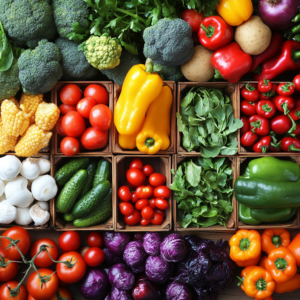
Gut-healthy foods is taking care of your gut might sound complicated, but it’s pretty simple—eat the right foods! A healthy gut improves digestion, boosts your immune system, and even affects your mood. The best part? You don’t need fancy supplements. The solution is in everyday food! This post will cover ten gut-healthy food groups you can comfortably eat to keep your digestive system happy and balanced.
1. Fermented Foods: Your Gut’s Best Friend
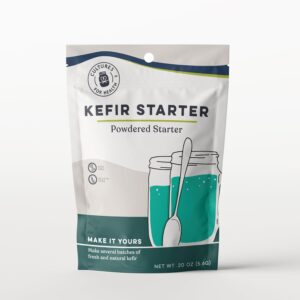
BUY NOW
$14.99
Fermented foods are packed with probiotics, the a healthy gut Your gut needs to stay fit and in balance. These probiotics help break down food, absorb nutrients, and fight off harmful bacteria.
- What to eat: Yogurt, kimchi, sauerkraut, kefir, miso, and tempeh.
- How they help: These foods boost the levels of good bacteria in your gut, making digestion easier and improving nutrient absorption.
Quick tip: Start with a small serving of yogurt or kefir daily. If you’re feeling adventurous, try adding a little kimchi or sauerkraut to your meals for a probiotic punch.
2. High-Fiber Vegetables: Nature’s Digestive Aid
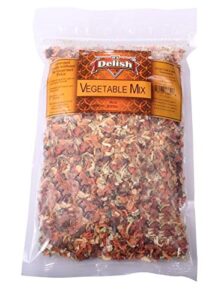
BUY NOW
$21.99
Fiber is one of the most essential nutrients for gut health, and veggies are loaded with it. Eating fiber-rich vegetables helps regulate bowel movements and keeps things moving through your digestive system.
- What to eat: Spinach, kale, carrots, broccoli, sweet potatoes, Brussels sprouts, and cauliflower.
- How they help: These vegetables are packed with Fiber gives the good bugs in your gut something to eat. The more good bacteria, the better your digestion!
A quick tip: Roast or steam your veggies to make them easier on your digestive system. Your plate should have a lot of different colors to maximize gut-friendly nutrients.
3. Whole Grains: A Gut’s Best Fiber Source
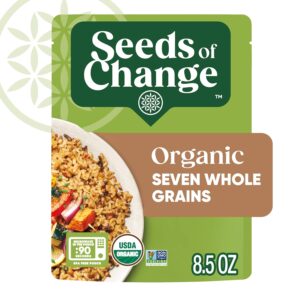
BUY NOW
$34.07
Whole grains are a fantastic way to get the fiber your gut craves. Unlike refined grains, whole grains still have all their fiber, vitamins, and minerals intact, making them an excellent choice for digestion.
- What to eat: Oats, quinoa, brown rice, and whole wheat bread.
- How they help: The fiber in whole grains helps regulate digestion and feeds the good bacteria in your gut. It also keeps you full and satisfied for longer.
A quick tip: Swap out white rice and pasta for their whole-grain versions. In the morning, a simple bowl of oatmeal is easy to kickstart your day with gut-healthy fiber.
4. Legumes: A Fiber-Packed Powerhouse
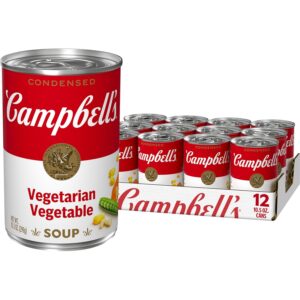
BUY NOW
$20.64
Legumes, like beans and lentils, are some of the most fiber-packed foods you can eat. They’re also rich in resistant starch, a fiber that isn’t fully digested and feeds your gut bacteria.
- What to eat: Lentils, chickpeas, black beans, and kidney beans.
- How they help: The high fiber content in legumes supports bowel regularity and helps good gut bacteria thrive.
Quick tip: Add legumes to soups, salads, or stews for a fiber boost. They’re also a fantastic, budget-friendly protein source for plant-based meals.
5. Pectin-Rich Fruits: Sweet and Gut-Friendly
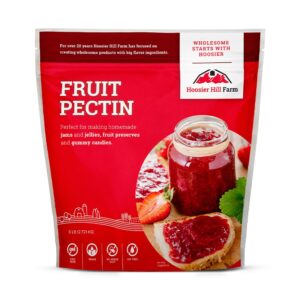
BUY NOW
$54.99
Pectin is a soluble fiber that helps the good bacteria in your gut grow by acting as a prebiotic. Fruits rich in pectin are a tasty way to keep your gut in check.
- What to eat: Apples, pears, citrus fruits, and plums.
- How they help: Pectin slows digestion, giving your body more time to absorb nutrients. It also helps waste move through your intestines, keeping things regular.
A quick tip: Snack on apples and pears with the skin on to get the most fiber. Add citrus fruits to smoothies or salads for a refreshing, gut-friendly treat.
6. Nuts and Seeds: Small But Mighty
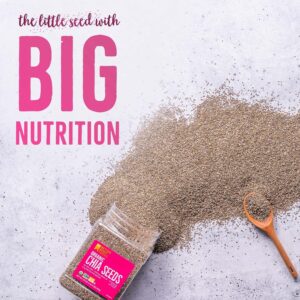
BUY NOW
$9.58
Nuts and seeds are full of fiber, healthy fats, and plant-based proteins that help keep your digestive system running smoothly. These tiny snacks pack a big punch when it comes to gut health.
- What to eat: Almonds, chia seeds, flaxseeds, walnuts, sunflower, and pumpkin seeds.
- How they help: The fiber in nuts and seeds promotes bowel movements, while their healthy fats reduce inflammation and soothe the digestive system.
Quick tip: Sprinkle chia or flaxseeds into your yogurt or smoothies. Nuts like almonds or walnuts make for a great on-the-go, satisfying and gut-friendly snack.
7. Healthy Fats: Protecting Your Gut Lining
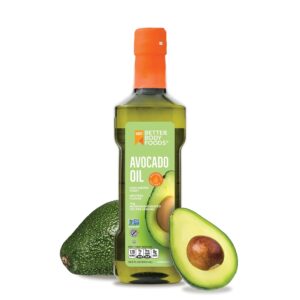
BUY NOW
$8.24
Healthy fats, significantly those rich in omega-3s, can lessen swelling and protect the inside of your gut. These fats keep your digestive system smooth and help prevent leaky gut syndrome.
- What to eat: Avocados, olive oil, salmon, and other fatty fish.
- How they help: Omega-3 fatty acids in healthy fats are anti-inflammatory and can soothe your digestive tract, protecting your gut lining.
A quick tip:
- Add some avocado to your salads or toast.
- Drizzle olive oil over veggies.
- Try eating fatty fish like salmon a few times a week.
8. Bone Broth: A Gut-Healing Comfort Food
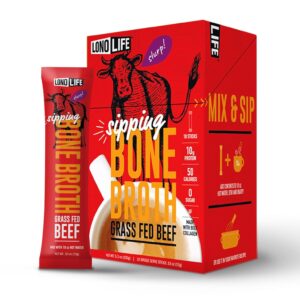
BUY NOW
$18.89
Bone broth has become famous for its gut-healing properties, and it’s no wonder why. It’s rich in collagen, gelatin, and amino acids that can help strengthen and repair your gut lining.
- What to eat: Bone broth from beef, chicken, or fish bones.
- How it helps: Bone broth’s collagen and amino acids help heal the gut lining, This makes it a great choice for people who have stomach problems like leaky gut or inflammation.
Quick tip: Sip on bone broth as a comforting drink or use it as a base for soups and stews. It’s an easy way to nourish your gut while adding flavor to your meals.
9.Herbs and Spices: More Than Just Flavor
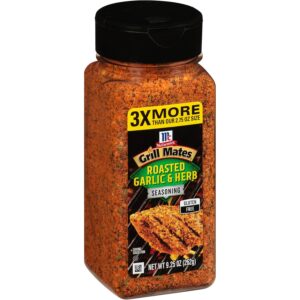
BUY NOW
$7.43
Herbs and spices are more than just a way to flavor your food—they have powerful gut benefits, too. Many contain anti-inflammatory and antimicrobial properties that help balance the bacteria in your gut and soothe digestive discomfort.
- What to eat: Ginger, turmeric, garlic, cinnamon, and peppermint.
- How they help: Ginger and turmeric fight inflammation, garlic acts as an antimicrobial, and cinnamon and peppermint can help relieve bloating and digestive discomfort.
A quick tip: Add ginger to your tea or smoothies, sprinkle turmeric on roasted veggies, and use garlic liberally in your cooking. These small additions can significantly impact your gut health.
10. Water-Rich Foods: Hydration for Smooth Digestion
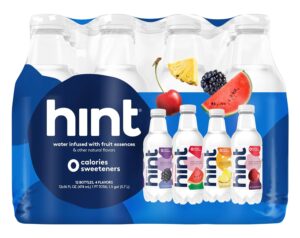
BUY NOW
$11.38
Gut-healthy foods with hydration is vital to keeping your digestive system running smoothly, and eating water-rich foods is a great way to stay hydrated while enjoying a light, refreshing snack.
- What to eat: Cucumbers, watermelon, celery, and zucchini.
- How they help: Water-rich foods help hydrate your It helps food move through the digestive system through your system and preventing constipation.
A quick tip: Snack on cucumbers and celery or add them to salads for an extra hydrating boost. Watermelon and zucchini are excellent choices for light summer snacks that support gut health.
Conclusion
Taking care of your gut doesn’t have to be complicated or expensive. Adding these ten gut-healthy food groups to your diet can improve your digestion, nourish the good bacteria in your gut, and make you feel better overall. Start by incorporating a few of these foods into your daily routine; over time, you’ll notice the positive effects on your gut and well-being.
Remember that a healthy gut makes you happier you!
If you want to learn my #1 Goli Apple Cider Vinegar Gummy Vitamins , Click Here Now





